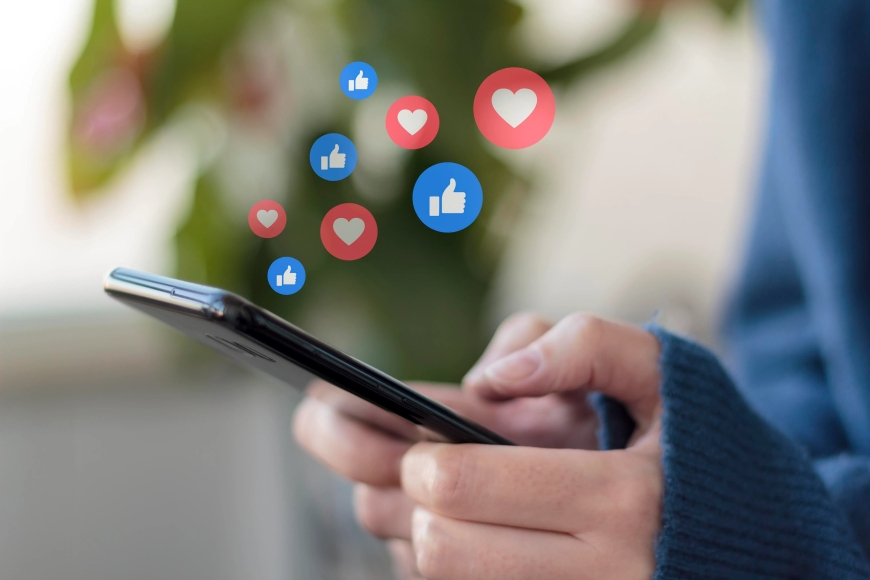How Social Apps Are Reshaping Life for Neurodivergent Adults
Discover Synchrony, a social app for neurodivergent adults designed for genuine connection, low-pressure conversations, and inclusive community.

Finding meaningful connection in a world built around fast-paced communication and unspoken social rules can be a major challenge especially for neurodivergent adults. For individuals who process information or interact with the world differently due to autism, ADHD, or other cognitive variations, traditional social platforms often fall short. But thanks to the rise of thoughtfully designed social apps, new pathways to connection, inclusion, and empowerment are emerging.
These platforms are doing more than just connecting people; they're reshaping how neurodivergent individuals experience friendship, community, and self-expression in the digital age.
Rethinking Connection in Neurodivergent Spaces
Many neurodivergent adults have experienced the isolating effects of environments that aren't built with them in mind. From sensory-overloading group gatherings to confusing online interactions, navigating social life can feel exhausting or even alienating.
Thats where specialized platforms come into play. Social apps designed with neurodivergent adults in mind are intentionally created to reduce pressure, increase comfort, and support authentic communication. These apps often allow for flexible conversation styles, quiet time between responses, and topic-focused interactions features that make socializing more accessible and far less draining.
One example is a social app for neurodivergent adults that offers interest-based communities, customizable communication options, and a sensory-friendly design to support more comfortable social interaction. Unlike traditional social networks that reward speed and volume, these apps prioritize thoughtfulness, safety, and user control.
From Inclusion to Empowerment
More than just adapting existing platforms, these new social apps are being built from the ground up with neurodivergent users leading the conversation. Developers are increasingly consulting directly with autistic adults, ADHDers, and others within the neurodivergent community to identify needs that might otherwise be overlooked such as features for managing overstimulation, understanding nonverbal cues, or setting clearer boundaries.
Instead of assuming what support looks like, these platforms ask. And that small shift from design for a group to design with a group has a big impact.
These tools dont just offer a sense of inclusion; they support empowerment. When people are given control over how they engage, theyre more likely to participate, explore new friendships, and express themselves in ways that feel genuine and safe.
The Value of Low-Pressure Socializing
For neurodivergent adults, social fatigue is a real and often misunderstood phenomenon. High-stimulation environments, unclear conversational expectations, and unspoken social cues can all contribute to anxiety and withdrawal.
What makes these new social apps unique is their low-pressure approach. Many offer:
-
Structured conversation prompts to help ease into dialogue
-
Interest-based groups that reduce small talk and promote shared connection
-
Non-verbal communication tools, such as emojis or visual boards
-
Asynchronous chat options, so users dont feel pressured to reply instantly
These features arent just convenient, they're essential. They allow users to engage socially without burning out or masking their true selves. And in many cases, they help build confidence over time, making socializing less intimidating in both online and offline settings.
Bridging the Gap Between Isolation and Community
One of the most powerful outcomes of these apps is their ability to foster genuine connection. For those who may have spent years feeling disconnected or misunderstood, finding a community that "gets it" can be transformative. Whether its discussing shared experiences, navigating life milestones, or just chatting about favorite hobbies, these platforms give space for friendships that feel safe, supported, and reciprocal.
The ripple effect is significant. Reduced isolation often leads to better mental health, improved self-esteem, and increased willingness to engage in other areas of life from work to personal development.
Beyond just creating digital friendships, some of these platforms even facilitate local meetups or virtual events for those who want to take their social life one step further.
A Reflection of Broader Change
The rise of neurodivergent-friendly social apps is more than just a tech trend; it reflects a growing societal shift toward valuing neurodiversity. Its a recognition that different ways of thinking and communicating are not deficits to be corrected, but strengths to be supported and celebrated.
Technology is now beginning to reflect that understanding, and the result is a suite of tools that dont just accommodate differences, they embrace it.
This change is also influencing broader discussions about how social media can be healthier and more inclusive for everyone. After all, many of the features created for neurodivergent users such as reduced sensory load, increased control, and clear communication are useful for anyone seeking a more mindful social experience.
Conclusion
Ultimately, the growing availability of apps designed for neurodivergent adults is helping people reclaim their social lives on their own terms. These platforms dont promise to solve every challenge but they offer a starting point, a soft place to land, and a space where being yourself isnt just accepted, its encouraged.
For anyone who's ever felt sidelined, overstimulated, or simply out of sync on mainstream social platforms, discovering Synchrony a trusted social app for neurodivergent adults can be more than a small step; it can spark a meaningful shift toward real connection, self-assurance, and belonging.










































